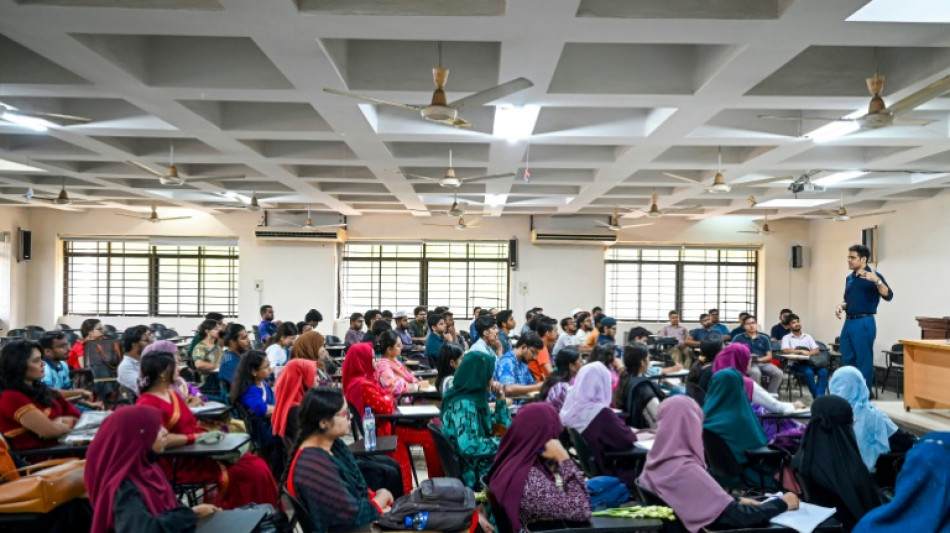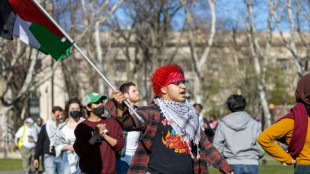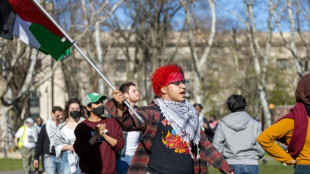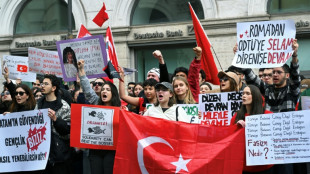

Classes resume at Bangladesh university at heart of protests
Students returned to classes at Bangladesh's Dhaka University on Sunday after a weeks-long shutdown sparked by a student-led uprising that toppled autocratic prime minister Sheikh Hasina.
Tens of thousands demonstrated on campus and in the surrounding Shahbagh neighbourhood as protests against job quotas morphed into a nationwide struggle to end Hasina's 15 years of iron-fisted rule.
As the protests swelled in July, authorities shuttered the campus as part of a crackdown on the demonstrations that killed hundreds.
Several of the top student protest leaders were enrolled at the university, some of whom were snatched by plainclothes police and held in custody for several days.
On Sunday the lecture halls were full again, with students chatting in groups along tree-covered walkways and buying drinks and snacks at canteens.
"I feel so much better coming back to class after a long time," said Arpita Das, who studies political science.
"It was like a new students' reception as our teacher welcomed us in class with flowers."
Das said she was present during a pitched battle on campus in July, when protesters and students backing Hasina's Awami League party fought each other with rocks, sticks and iron rods.
"We were used to the routine of going to classes, study and exams," she said.
"We were in so much uncertainty about whether we could resume class again and complete our studies," she added.
Classes had started again in all but four or five departments said assistant proctor Mohammad Mahbub Quaisar, who was appointed after previous administrators loyal to Hasina resigned.
"Students are attending in a joyous mood," he said.
Hasina's government was accused of widespread abuses, including the mass detention and extrajudicial killing of political rivals.
More than 600 people were killed in the weeks leading up to Hasina's ouster in early August, according to a preliminary United Nations report that said the toll was "likely an underestimate".
Since her departure for exile in neighbouring India, cabinet ministers and other senior members of Hasina's party have been arrested, and her government's appointees have been purged from courts and the central bank.
In the leafy streets of the Shahbagh neighbourhood, colourful new murals exhort the public to "destroy the iron doors of prison" and celebrate Bangladesh's "rebirth".
"It was like we were in an oppressive era when we could not say anything," said masters student Kalimulla Al Kafi, 25, of the crackdown ordered by Hasina.
"Today it feels like I am attending classes with freedom."
"We can express ourselves freely."
Y.Byrne--NG



